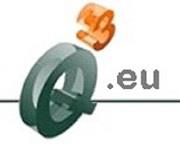|
Q3.eu Project is founded by the EU Lifelong Learning Program (LLP) and subprogram GRUNDTVIG. The project is coordinated by FENACERCI, Portugal in collaboration with Cyprus Neuroscience and Technology Institute, ECQ European Center for Quality Ltd, BTECNET Technologie-Netzwerk Berlin, E.RI.FO. Ente per la ricerca e formazione.
3rd Sector faces challenges that create the need for new spaces of collaboration, learning and sharing. For that is necessary to enlarge networking and promote an European framework of discussion about the theme. This project main objective is to identify and exchange 3rd Sector qualification experiences at an European level, involving partners who's experience may create an added-value towards the deepness and improvement of 3rd Sector qualification activities.
Overall objectives
- Share 3rd Sector qualification experiences, debating conceptual and legal framework, financing and training models, successful practices, evaluation methods, competences recognition and other major results;
- Identify innovative solutions and practices for management and working models problems in 3rd Sector organisations and perspective their possible integration as 3rd Sector qualification tools;
- Define joint training and consultancy standards, in result of partnership experience/results integration;
- Propose new European project proposals;
- Create and enlarge the network of European partners, as a resource for these and other European partnership projects.
Expeceted impacts
- Development of relationships and networking activities among the participating persons and institutions, contributing to the development of synergies and mutual enrichment;
- Better understanding of the history, nature, diversity, roles, problems and challenges faced by nonprofit organizations in the participating countries and regions;
- Dissemination of knowledge about different models, practices and materials used across Europe to qualify nonprofit organization and to develop their human resources;
- New personal and institutional competences to assess the training needs within nonprofit organizations and to plan participatory training projects and initiatives;
- More creative and innovative approaches to solve management problems and other situations related to the performance of nonprofit organizations; and
- Design of joint training-consulting and/or research-training-action projects and initiatives, combining the experiences of the involved persons and institutions.
